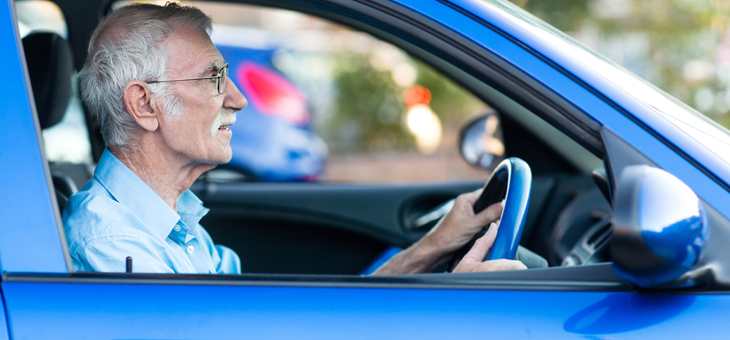New research has reignited debate about screening tests for older drivers.
An Australian study, published in the Journal of the American Medical Association (JAMA), concludes that “there is sufficient evidence to use off-road screening tests to identify older drivers who may be unsafe. Validated off-road tests are cost effective and efficient, and they could be a more cost-effective approach to manage safety among older drivers.”
In 2019, figures were released showing road deaths were increasing among drivers over the age of 75. Older drivers accounted for 12 per cent of all fatalities, though they made up only 6 per cent of licence holders.
In 2016, motoring club the RACV said drivers over the age of 70 were “one of the safest demographic groups on the road” and should not be subject to mandatory testing because “impairment, not age, is the key to determining whether someone should be behind the wheel or not”.
But the spike in deaths among older drivers has led to repeated calls for more stringent testing of driving skills.
The JAMA study aimed to develop evidence-based assessments to identify older individuals who might be unsafe drivers. It analysed eight off-road screening tests to predict on-road driving ability and to “identify which combination of these provides the best prediction of older adults who will not pass an on-road driving test”.
The study found that off-road screening tests can “reliably identify older drivers with a strong probability of failing an on-road driving test”.
“Implementation of these measures could enable better targeting of resources for managing older driver licensing and support injury prevention strategies in this group.”
The strictest driving rules in Australia are in New South Wales, where drivers over the age of 75 must undergo annual medical assessments to retain a licence. Over the age of 85, they must pass a practical driving test every second year to maintain their licence.
In Victoria, there are no tests for older drivers; the onus is on individuals to decide when they are unable to drive safely.
“While the road toll is decreasing in Australia on average, deaths among older Australians are actually increasing,” UNSW Ageing Futures Institute director and NeuRA senior principal research scientist Professor Kaarin Anstey told The New Daily.
“And it’s partly because we’ve got an ageing population and we have more older drivers on the road, but also because older drivers make more errors.”
Prof. Anstey and colleagues wrote that brief off-road screening tests “could be a cost-effective, objective tool to screen older drivers to determine who might be an unsafe driver … and that both off-road and on-road testing can help identify those unfit to drive”.
The Australian Road Safety Foundation’s Russell White says drivers need to be trained to “spot danger”.
“Elderly driver retesting is not necessarily about age; we need to be better at detecting people’s ability to drive as they get older.”
A YourLifeChoices poll found that driving was important to an individual’s independence
“When asked if losing the ability to drive would be an issue, 39 per cent said it would be a very serious problem, 27 per cent said it would be somewhat serious and 24 per cent said it would be a moderate problem. Only 8 per cent said it would be a minor problem and for 3 per cent, it wouldn’t be a problem at all.”
Despite this, 70 per cent of the 1674 readers polled supported annual mandatory driving assessments.
The National Institute on Ageing offers these questions for older drivers to ask themselves about their capacity to continue driving:
- Do other drivers often hoot at me?
- Have I had some accidents, even if they were only ‘fender benders’?
- Do I get lost, even on roads I know?
- Do cars or people walking seem to appear out of nowhere?
- Do I get distracted while driving?
- Have family, friends, or my doctor said they’re worried about my driving?
- Am I driving less these days because I’m not as sure about my driving as I used to be?
- Do I have trouble staying in my lane?
- Do I have trouble moving my foot between the accelerator and the brake pedals, or do I sometimes confuse the two?
- Have I been pulled over by a police officer about my driving?
The institute says that if you answered ‘yes’ to any of these questions, it may be time to talk with your doctor about driving or have a driving assessment.
Do you think we should have regular skills testing for older drivers?
If you enjoy our content, don’t keep it to yourself. Share our free eNews with your friends and encourage them to sign up.
Related articles:
https://www.yourlifechoices.com.au/news/older-drivers-not-the-problem
https://www.yourlifechoices.com.au/news/are-agebased-driving-tests-fair
https://www.yourlifechoices.com.au/news/when-should-you-stop-driving

